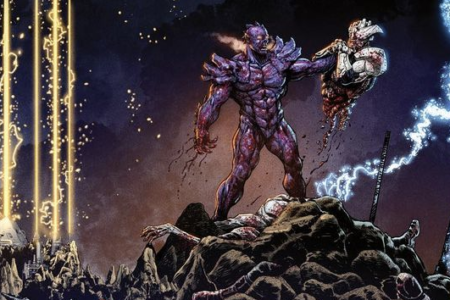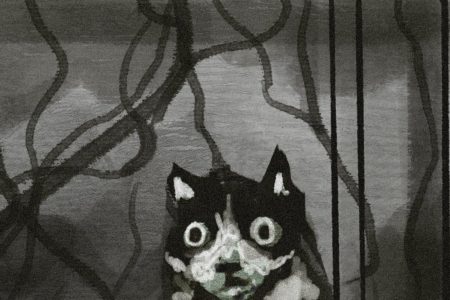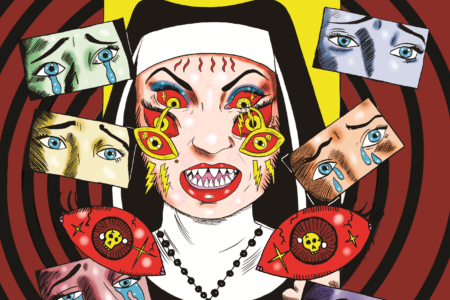Features
Who is the REAL Psycho Goreman?
Despite only recently encountering Earth and its cultures, the medium of comics hasn’t been lost on the "Arch-Duke of Nightmares." We speak with Psycho Goreman's caretakers about his new graphic adventures.
Budgets of Blood: How Splatter Propels a World of No-Budget Filmmaking
For every successful foray into Hollywood there’s 100 cash-strapped nightmares making use of ingenuity and offal. The rogue visionaries with a passion for film so strong that no empty pocket could ever prevent them from sharing their goopy artistry.
Art Holes: Boo!
Horror artist Trevor Henderson gives us a peek at the nightmare factory.
Gretchen Felker-Martin’s Gory Little Details
A twist of bone. A tease of flesh. Cannibals and testicles. We sat down with the Manhunt author about survival and sinew. “It’s an unfortunate way to get publicity, but if they’re giving it to me, I’ll take it. And I’ll use it to do all the things they’re so afraid I’ll do.”
Budgets of Blood: How Splatter Propels a World of No-Budget Filmmaking
For every successful foray into Hollywood there’s 100 cash-strapped nightmares making use of ingenuity and offal. The rogue visionaries with a passion for film so strong that no empty pocket could ever prevent them from sharing their goopy artistry.
A Prayer for The Acid Nun
The long, strange trip through grief, horror, shock and sleaze that brought cartoonist Corinne Halbert to her psychosexual, nunsploitation anti-heroine.






